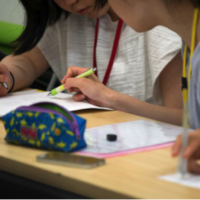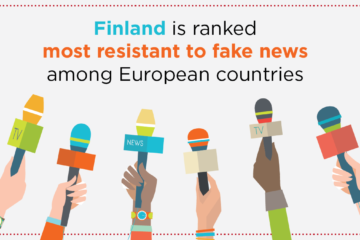Australian States Introduce Universal Preschool
New South Wales (NSW) and Victoria have jointly announced a plan to introduce universal voluntary preschool. Children in both states will be able to attend five days a week, free of charge, within a decade. In Victoria, AUS$9 billion (US$6.3 billion) will fund 15 hours per week of programming for three- and four-year-olds starting in 2023, increasing to 30 hours a week in 2025; the government has also committed to funding 50 affordable childcare centers in high-demand areas. NSW, meanwhile, has committed AUS$5.8 billion (US$4 billion) over the next 10 years for preschool. The state will introduce a pilot program starting next year, with a plan to expand it to all four-year-olds by 2025. NSW Education Minister Sarah Mitchel expects the vast majority of families to take advantage of the program because it will save families money and allow stay-at-home parents to return to work. Read more about the announcement at the ABC and the Sydney Morning Herald.

Japan to Offer Learning Supports for Students with Outstanding Talents

Japan’s education ministry has launched a support program for elementary and junior high school students with talents in specific areas. Starting next year, they will receive additional, advanced instruction, either online or by attending lectures at partner universities or nonprofit organizations. This new program will target students who are ahead of their classmates and at risk of not attending school because they no longer find the content engaging. Students will be selected primarily on recommendations from teachers, not test scores. It’s similar to one the education ministry already runs which gives students interested in STEM the opportunity to study at universities and companies. Read more about this initiative at the Japan Times.
England Creating New Schools to Better Serve High-Need Students

England is creating dozens of new schools to better serve the needs of students who live in disadvantaged areas, have special education needs, or need more extensive behavioral and mental health support. Up to 75 new schools will open from September 2025 on and will serve more than 4,500 students. The new schools are part of the government’s latest education reforms, with an aim “to radically raise the national average attainment in English and maths” among students who traditionally have not been well-served. Education Secretary Nadhim Zahawi said the new schools “…make sure that every child, in every corner of the country, gets the support they need to succeed.” For more, see the UK Government news release.
Netherlands Looks To Reverse Slipping Academics

Dutch education ministers are rolling out the first part of their plan to reverse declining academic performance in the country’s schools. They will focus on teachers’ needs, with 500 schools getting more help from support staff and outside experts. Dutch education officials were concerned by an April report showing a drop in academic performance and have pledged to get back to basics. A master plan in the works will spend a billion euros to improve standards. “People simply cannot live without being able to read, calculate or know how the (online) world works,” said schools minister Dennis Wiersma. Dutch students just wrapped up three weeks of school leaving exams but those who score poorly will get a second shot this summer under temporary leniency due to the pandemic’s hardships. Dutchnews.nl has more.
New Zealand Strengthens Nationwide Vocational Education Provider Network
New Zealand has broadened Te Pūkenga, its newly created network of regional vocational education providers, to include a sixth Industry Training Organization (ITO). This means that half of the ITOs in New Zealand, along with all 16 Institutes of Technology and Polytechnics, are now part of Te Pūkenga. The newest ITO to join the network is Careerforce, which supports work-based training for the health care, mental health, social services and youth services sectors. The network is a key part of the government’s Reform of Vocational Education (RoVE) strategy to simplify vocational qualifications and create a “strong, unified and sustainable system for vocational education and training.” Read more about Careerforce and the Te Pūkenga network at Scoop.





